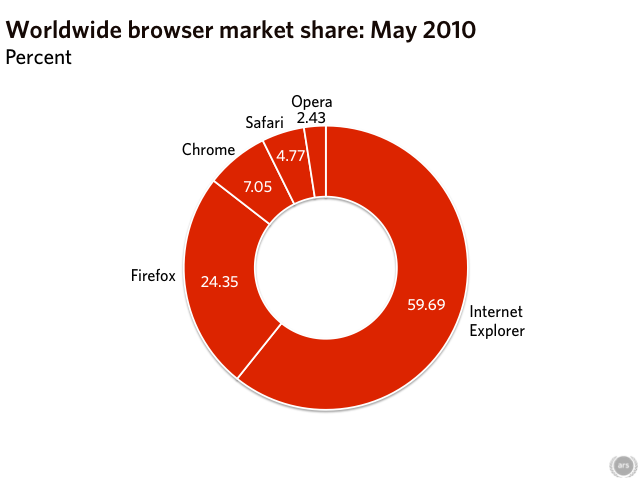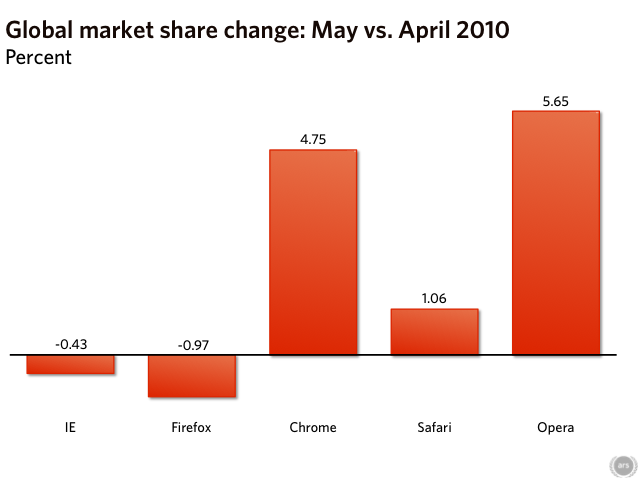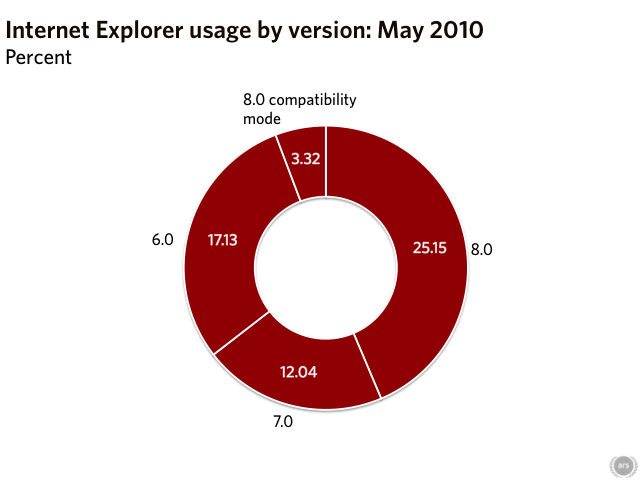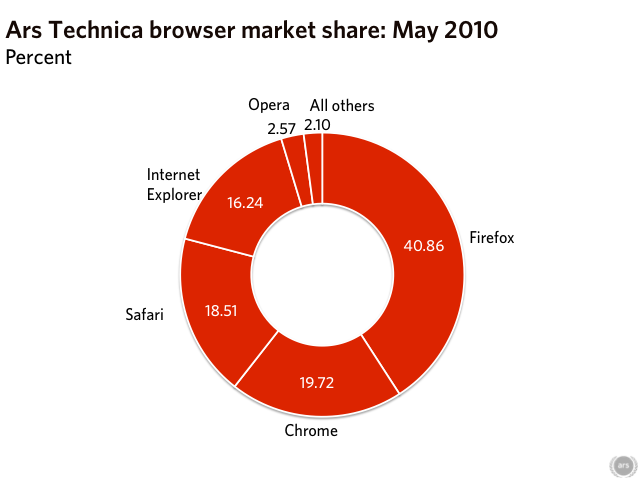
As of April, fewer than 6 out of 10 people use Internet Explorer. The browser trends that we've noted over the past several months are continuing with no sign of alteration: IE continues to slip, Firefox and Opera are fairly static, Safari is very slowly moving forward, and Chrome is pushing ahead at breakneck speeds. If we take a closer look at IE, though, we see that version 8 of Microsoft's browser is actually growing faster than Chrome, but it's still not enough to counter the overall decaying of IE.
During May, only Internet Explorer and Firefox failed to show positive growth.
Between April and May, Internet Explorer dropped 0.26 percentage points (from 59.95 percent to 59.69 percent) and Firefox fell 0.24 percentage points (from 24.59 percent to 24.35 percent). Chrome jumped 0.32 percentage points (from 6.73 percent to 7.05 percent), Safari gained 0.05 percentage points (from 4.72 percent to 4.77 percent), and Opera increased 0.13 percentage points (from 2.30 percent to 2.43 percent). While IE still dropped the most and Chrome still gained the most compared to the other three competitors, the changes weren't as significant as in previous months.

The EU's browser ballot has been out for three months now and the data continues to show that it is barely contributing to IE's slide, if at all. We've seen IE drop more than one percentage point on multiple occasions, and last month's loss was Microsoft's smallest decline in the last 12 months. European numbers continue to vary depending on the source you look at, but in all cases the changes after three months are part of bigger trends and the browser ballot just doesn't appear to be doing much.
As for Firefox, the browser has once again moved away from the 25 percent mark, for which Chrome is likely to blame. Firefox 3.6, which was growing very quickly, slowed its growth tremendously last month but still moved up to 15.69 percent (still ahead of IE7, but not yet IE6). It looks as if the last thing that could possibly turn things around for Mozilla is Firefox 4.0.

The importance of being the default app in the world's most popular operating system continues to boost IE. Microsoft's browser is still used by more than half of all surfers and IE8 is being used by more than one in four users on the Web (quickly closing in to be one in three). IE7 and IE6 are both slowly sliding backwards in share. Unfortunately for Web developers everywhere, IE6's share is greater than IE7's (and for the first time in a while, IE7 lost more share than IE6), which can be attributed to businesses still using customized intranet applications as well as the fact that XP's share is much bigger than Vista's. IE6's market share still dropped a solid 0.45 percent while IE7 fell 0.46 percent. IE8 rose 0.81 percentage points to 28.47 percent (notice that this is still higher than any browser's growth, including Chrome).

As always, things at Ars are a lot different: Firefox continues to dominate, but the default browsers for Windows and Mac OS X still show their strength. This month, we saw Chrome steal second place, pushing Safari and Internet Explorer into third and fourth places, respectively. Compared to last month, Firefox gained share, Chrome gained share, Safari lost share, IE lost share, and Opera gained share. It looks like Chrome's lack of positive growth last month was just a minor blip here on the site.
reader comments
46